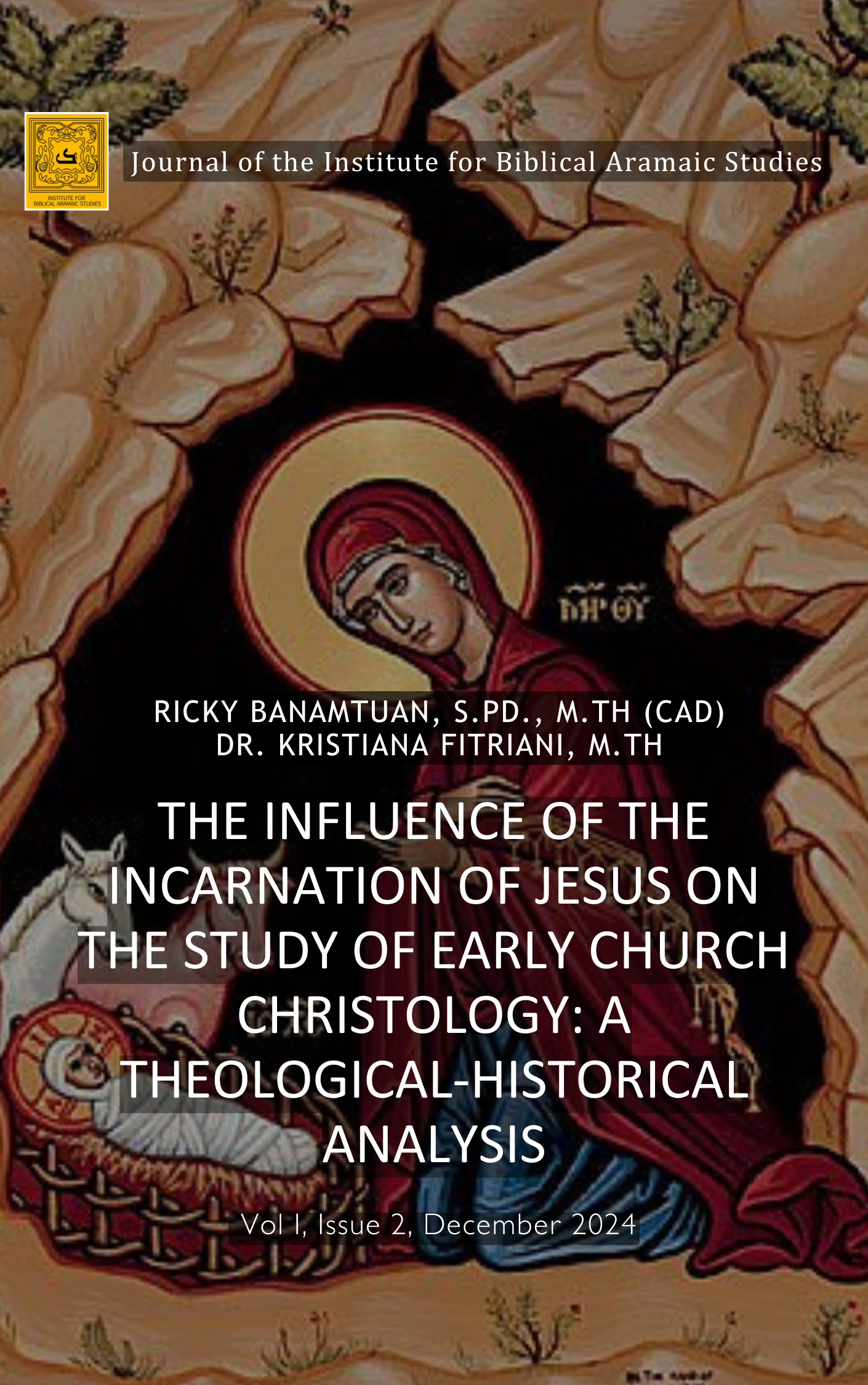The influence of the incarnation of Jesus on the study of early church christology: a theological-historical analysis
DOI:
https://doi.org/10.5281/js46a077Keywords:
Doctrine of Incarnation, Early Christian Christology, Nicene Creed, Arianism, Christian Orthodoxy, Hellenistic InfluenceAbstract
This research examines the pivotal significance of the doctrine of the Incarnation in the evolution of early Christian Christology, with emphasis on its impact upon theological and doctrinal formulations concerning the essence of Christ. The present study will seek to fill a void in contemporary scholarship regarding the influence of the Incarnation on Christological discussions within the early Church, especially in the dual nature of Jesus Christ as human and divine. Using a historical-theological approach, this study examines key texts written by early Christian theologians and explores the contextual influences arising from Hellenistic culture that shaped the development of Christological doctrine.
It proves that the Incarnation was important not only to the early Christian intellectual tradition but also in the formation of the Nicene Creed as a response to heretical positions such as Arianism and as the foundation for orthodox Christian doctrine. This dissertation shows that the concept of the Incarnation was crucial in formulating theological responses to the first challenges that Christianity faced and, as such, connected ancient philosophical debates with the nascent Christian teachings. What is more, it points out the strategic use of the Incarnation to defend the full divinity and humanity of Christ, which would later become foundational to Christian orthodoxy.
This research affords a full understanding of the Incarnation, considered the basis of early Christian Christology and dogma, highlighting its crucial role in defining the nature of Christ. The study fills a gap in historical and theological scholarship, bringing forth the perennial significance of the Incarnation in shaping Christian doctrine and its continued importance in contemporary theological discussions.
Downloads

Downloads
Published
Issue
Section
License
Copyright (c) 2024 Journal of the Institute for Biblical Aramaic Studies

This work is licensed under a Creative Commons Attribution 4.0 International License.
License Terms
The work published in this journal is licensed under the Creative Commons Attribution-NonCommercial-ShareAlike 4.0 International License (CC BY-NC-SA 4.0). This means that:
-
Attribution (BY): You are free to share, copy, redistribute, remix, adapt, and build upon the material in any medium or format, for noncommercial purposes only, as long as you give appropriate credit to the original author(s), provide a link to the license, and indicate if changes were made.
-
Non-Commercial Use (NC): You may not use the material for commercial purposes. Commercial use means the material is not primarily intended for or directed towards commercial advantage or monetary compensation.
-
ShareAlike (SA): If you modify, remix, or adapt the material, you must license the modified material under identical terms, meaning that your adaptations must also be licensed under the same Creative Commons license (CC BY-NC-SA 4.0).
-
Non-Exclusivity: The author retains the right to use the work in other publications, presentations, or personal use, provided proper attribution is given.
-
No Additional Restrictions: You may not apply legal terms or technological measures that legally restrict others from doing anything the license permits.
-
Licensor: The original author(s) of the work are the licensor(s), who grant you the rights outlined in this license.
-
License Link: For more information on the terms of this license, please visit Creative Commons





